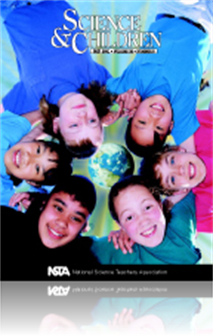All Science and Children resources
Journal Article
While working with classroom teachers, the author developed a “doable” format for inquiry. This format emphasizes using a question wheel as a tool to help students identify independent and dependent variables that drive the underlying structure i...
Journal Article
Children are naturally curious and passionate about taking care of the world around them. To capitalize on these interests, the unit described in this article was the result of a schoolwide theme entitled People and the Planet (Wasserman 1996). The u...
Journal Article
Technology permeates today’s society, but history also contains rich examples of technology as “a way of adapting.” The Egyptians’ approach to building pyramids, the construction of the Great Wall of China; world-wide canal systems; the desig...
Journal Article
Examining Language To Capture Scientific Understandings: The Case of the Water Cycle
As teachers of science, we need to keep in mind that thought and language are intricately related. Linguistic approximations, errors, and misses may be useful windows into our children’s developing thoughts and conceptions. Fostering more different...
Journal Article
Good teachers continually plan learning experiences to help young children make connections within and among areas of study (Zemelman, Daniel, and Hyde 1998). Integrating curriculum is important in helping children make these connections. Class proje...
Journal Article
When a Hypothesis is <em>Not</em> an Educated Guess
The terms prediction and hypothesis are often used interchangeably, yet one term means to think about what might happen and the other means to think about why something will happen. Misuse of these terms may deprive students of the opportunity to thi...
Journal Article
One way to help students develop their writing skills is through the “key-word process.” In this method, students select key words about a topic and then use those words to build their own sentences and paragraphs. The key-word process can be exp...
Journal Article
Science and Children’s editor shares thoughts regarding the current issue....




